The Earth’s average temperature hit an unprecedented 17.18 degrees Celsius on July 6, breaking global records for the third consecutive day. Scientists warn the world is “crossing the threshold” of climate change.
 |
| Londoners in the heat of July 2023. (Source: CNN) |
China, Japan, North African and Middle Eastern countries all have to issue heat warnings.
Speaking before the Congressional Select Committee on Defense and Climate Change on May 23, US President's special climate envoy, Mr. John Kerry, said that the climate crisis has reached a terrible threshold that the world has never known before.
“What you’re seeing is melting ice caps, wildfires, landslides, heat waves, floods, heat-related deaths, poor air quality. Millions of people are dying around the world every year from a cause that is not new, which is the use of fossil fuels without treating the emissions,” Mr. Kerry said.
Heat dome
Scientists say the climate crisis is making heat waves worse.
In May 2023 alone, the world recorded some astonishingly high temperature records. Spanish independent climatologist and weather historian Maximiliano Herrera (who specializes in extreme weather statistics) said that Shanghai, China recorded its highest temperature in more than 100 years on May 29. In Xiangyang County, Nghe An Province, the temperature reached 43 degrees Celsius on May 6, the highest ever recorded in Vietnam. On the same day, people in Thailand witnessed a temperature of 41 degrees Celsius, the hottest temperature ever recorded in Bangkok.
Siberia set dozens of records in June as temperatures soared to nearly 38 degrees Celsius in a heat dome that formed and stretched north.
Most heat records are set in a “heat dome,” which occurs when a high pressure area forms and doesn’t move for a week or more.
High pressure creates sunny weather with very few clouds, causing air masses to sink and heat up, causing temperatures to rise to uncomfortable, even dangerous, levels.
The climate crisis is predicted to make this phenomenon more frequent with increasingly higher temperatures.
Humans are vulnerable.
In the US, weather forecasters warn that the heat wave is dangerous because the nighttime temperatures do not drop enough, making the following day's sweltering conditions even more uncomfortable, especially affecting human health and households without air conditioning.
Scientists at the US Weather Prediction Center note that this heat wave could be more dangerous than usual, due to its record-long duration and high nighttime temperatures, which are among the consequences of the climate crisis.
“When there is a lot of moisture in the air, during the day that moisture reflects heat, but at night it retains heat,” explains Lisa Patel, executive director of the Climate and Health Medical Association (USA).
Nighttime is when the human body needs to rest, Ms Patel said. But because the nights remain hot, heat-related deaths could increase sixfold by the end of the century unless planet-warming pollution is significantly curbed.
Researchers warn that the climate crisis is also affecting sleep. A study published last month in the US found that people living in hotter climates are losing more sleep. “We all know how uncomfortable it is to try to sleep on a hot night,” says Ms Patel. “It is estimated that by the end of the century, people could lose about two days of sleep a year, and this is worse for those without air conditioning.”
If the human body is not restored, heat stress can progress to heatstroke, even causing dizziness and unconsciousness, she explained.
While this can happen to anyone, the elderly, people with chronic illnesses, and young children, especially infants, are more severely affected. In particular, when the heat lasts for several days, deaths increase because the human body is no longer able to cool itself.
“Enduring the heat during the day can be like running a race,” says Patel. “Humans need rest to recover, but because the temperature doesn’t drop at night, the body has a hard time reducing stress.”
Research published in the journal Nature Communications shows that places like Afghanistan, Papua New Guinea and Central America – including Guatemala, Honduras and Nicaragua – considered heat “hotspots” are particularly vulnerable due to rapidly growing populations and limited access to health care and energy supplies, which weaken people’s resilience to extreme weather.
Responsible action is needed
High nighttime temperatures are more common in cities due to the urban heat island effect, in which urban areas are significantly hotter than other areas.
Places with lots of asphalt, concrete, greenhouses and highways absorb more of the sun's heat than areas with parks, rivers and tree-lined streets. During the day, areas with lots of green space - with grass and trees that reflect sunlight and provide shade - are cooler.
“Many cities are building heat tunnels,” Kristie Ebi, a climate and health expert at the University of Washington, told CNN. She noted that city governments need to rethink urban planning to respond to climate change and provide full information about such heat tunnels so that people can use them appropriately.
“It will take time for trees to grow, but tree planting programmes need to be focused on particularly vulnerable places, to ensure that city planning takes into account a much hotter future.”
Experts say the frequency of extreme events occurring continuously is a warning from nature, requiring countries to act more responsibly in the fight against climate change.
Source












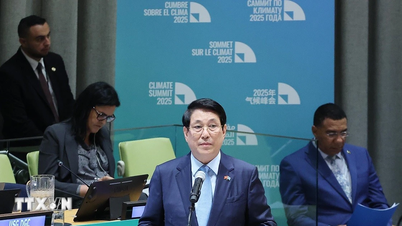

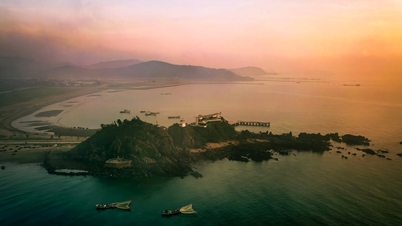

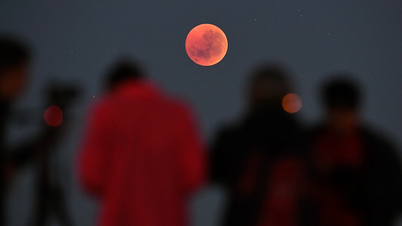
















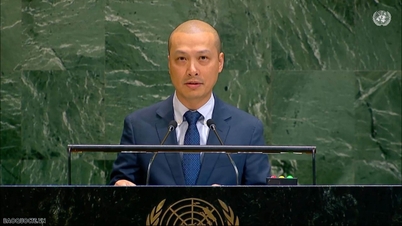

















































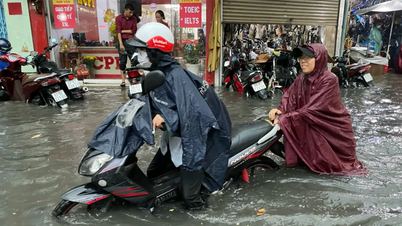




















Comment (0)